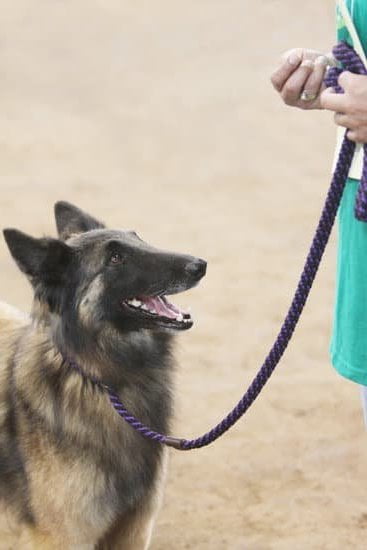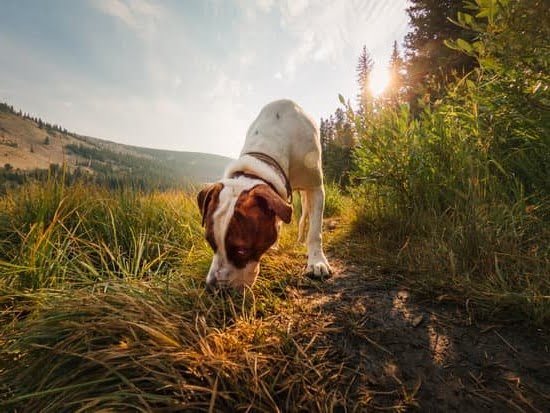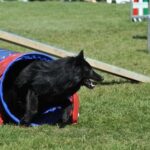House training a dog is an essential aspect of pet ownership, ensuring a clean and harmonious living environment for both the dog and its human companions. However, when it comes to house training a 12-year-old dog, many may wonder: can you house train a 12-year-old dog? Despite the challenges that come with house training an older canine companion, it is indeed possible with patience, dedication, and the right approach.
Training a 12-year-old dog poses unique challenges compared to training a young puppy. Older dogs may have deeply ingrained habits and issues with bladder control due to aging. These obstacles can make the house training process more demanding, requiring pet owners to understand the specific needs and limitations of their senior dogs.
Patience and consistency are key components in successfully house training an older dog. Establishing a routine that includes regular potty breaks, positive reinforcement, and clear communication can help guide your senior pup towards good bathroom habits. By acknowledging the potential difficulties and committing to a structured training regimen, pet owners can make significant progress in teaching their elderly canine companions proper indoor etiquette.
Understanding the Challenges of House Training an Older Dog
Training a dog at any age can be challenging, but house training a 12-year-old dog comes with its own unique set of obstacles. One of the primary challenges is breaking ingrained habits that the dog may have developed over the years.
Older dogs may have already established routines and behaviors that are difficult to change, making it harder to teach them new habits like going potty outside. Additionally, aging affects bladder control in dogs, which can make it more challenging for them to hold their bladder for extended periods.
Common Misconceptions
There are some common misconceptions surrounding the idea of house training older dogs. Some people believe that older dogs cannot learn new tricks or habits, including potty training. However, with patience, consistency, and the right approach, even senior dogs
Overcoming Challenges
To overcome the challenges of house training a 12-year-old dog, it is essential to approach the training process with patience and understanding. Older dogs may take longer to adjust to new routines and behaviors, so consistency is key.
Establishing a predictable schedule for feeding, potty breaks, and exercise can help your dog adapt more easily to the house training process. Using positive reinforcement techniques and offering rewards for good behavior can also motivate your senior pooch to learn new habits effectively.
Patience and Consistency
House training a 12-year-old dog may seem like a daunting task, especially when compared to house training a young puppy. However, with patience and consistency, it is possible to successfully teach an older dog new habits. One common misconception is that older dogs cannot be trained, but the truth is that they can learn at any age. The key lies in the owner’s dedication to implementing a steady routine and positive reinforcement.
Older dogs may have ingrained habits that make house training more challenging. They might have become accustomed to eliminating indoors or have less control over their bladder due to aging. Understanding these obstacles can help owners approach the training process with empathy and realistic expectations. It is essential to be patient with your senior dog as they adjust to the new house training routine.
Consistency is crucial when it comes to house training a 12-year-old dog. Establishing a regular schedule for feeding, potty breaks, and exercise can help reinforce good behaviors. Positive reinforcement, such as treats or verbal praise, can also motivate your older dog to continue following the house training rules.
Redirecting unwanted behaviors calmly and consistently will help your senior dog understand what is expected of them. With time and persistence, even a 12-year-old dog can learn new habits and become successfully house trained.
| Aspect | Details |
|---|---|
| Challenges | Aging bladder control and ingrained habits |
| Misconceptions | Older dogs cannot be trained |
| Key Tips | Patience, consistency, positive reinforcement |
Tools and Techniques for House Training a 12 Year Old Dog
House training a 12 year old dog may seem like a daunting task, but with the right tools and techniques, it is definitely possible. Here are some recommendations to help you successfully house train your older furry companion:
- Crate Training: Using a crate can be an effective tool for house training an older dog. Make sure the crate is appropriately sized for your dog and create a comfortable space inside with their favorite bedding. Dogs naturally avoid soiling their sleeping area, so the crate can help in teaching them to hold their bladder.
- Puppy Pads: Puppy pads can be useful especially if your older dog has trouble controlling their bladder due to age. Place the puppy pad in a designated spot indoors where your dog can relieve themselves if they are unable to make it outside in time. Slowly transition them from using puppy pads indoors to going outside for potty breaks.
- Reward Systems: Positive reinforcement is key when house training a 12 year old dog. Reward your furry friend with treats, praise, or playtime when they successfully go potty outside or on the designated spot indoors. This will motivate them to continue good behavior.
Exploring different house training techniques will also aid in the process of teaching your older dog where it is appropriate to go potty:
- Positive Reinforcement: Create a positive association with going potty in the right place by rewarding your dog every time they do so. Consistency is key in reinforcing this behavior.
- Redirection: If you catch your older dog in the act of having an accident indoors, gently redirect them to the correct spot and praise them when they finish there instead. This gentle redirection helps reinforce where it is appropriate to go potty.
- Schedule: Establishing a regular feeding and potty schedule can also assist in house training an older dog. Take them out first thing in the morning, after meals, before bedtime, and any other times you notice they indicate needing to go. This routine helps prevent accidents indoors and reinforces good habits.
Utilizing these tools and techniques, along with patience and consistency, can you house train a 12 year old dog Remember that every dog is different and may require individualized approaches to succeed in house training. With dedication and proper guidance, you can help your older canine companion learn new habits and maintain a clean living environment for both of you.
Health and Behavior Considerations
As dogs age, they may experience health issues that can impact their ability to be house trained. Conditions such as arthritis, incontinence, or cognitive dysfunction syndrome can affect their bladder control and overall behavior. It is essential to address these health concerns with a veterinarian to determine the best course of action for house training a 12-year-old dog.
Additionally, behavioral problems such as anxiety or fear can also play a role in the house training process. These issues must be identified and addressed to create a conducive environment for effective training.
Furthermore, it is important to consider the impact of medications and treatments on a senior dog’s house training progress. Some medications may increase thirst or alter bladder function, which can lead to more frequent accidents indoors. Understanding how these factors interact can help pet owners better manage the house training process and adjust strategies accordingly. Consistency in managing medication schedules and monitoring your dog’s behavior can significantly improve their success in being house trained.
In addition to physical health considerations, behavioral issues should not be overlooked when house training an older dog. Anxiety or stress-related behaviors can manifest in inappropriate elimination habits or refusal to follow commands. Working with a professional trainer or behaviorist can provide valuable insights into addressing these challenges effectively. By combining proper healthcare management with behavioral interventions, pet owners can create an environment that supports successful house training for their 12-year-old furry companions.
| Health Concerns | Behavioral Considerations |
|---|---|
| Arthritis | Anxiety |
| Incontinence | Fear-related behaviors |
| Cognitive Dysfunction Syndrome | Medication effects on behavior |
Setting Realistic Expectations
When it comes to house training a 12 year old dog, setting realistic expectations is crucial for a successful outcome. Older dogs may have already developed habits that can be challenging to break, making the house training process a bit more complicated than with younger dogs. It’s important to understand that it may take more time and effort to house train an older dog, but with patience and consistency, it is definitely possible.
Managing Expectations
It’s essential to manage your expectations when house training a 12 year old dog. Understand that they may not learn as quickly as a younger dog and may require more frequent potty breaks due to aging bladder control. Be prepared for setbacks and accidents along the way, and remember that progress may be slower than expected. By acknowledging these challenges upfront, you can approach the house training process with realistic expectations and a positive mindset.
Timeline for Progress
Setting a timeline for progress can help you track your 12 year old dog’s development in house training. Recognize that every dog is unique, and some may catch on quicker than others.
Establish milestones to celebrate small victories along the way, such as consistently using puppy pads or signaling when they need to go outside. By breaking down the house training process into manageable steps and tracking their progress, you
Troubleshooting Common Problems
House training a 12-year-old dog can be a challenging task, especially when facing common problems that may arise during the process. One of the most frequent issues pet owners encounter is accidents inside the house. This can be due to several factors, such as your dog’s unfamiliarity with the new routine or possible health issues. To address this problem effectively, it is essential to remain patient and consistent in your training efforts.
Here are some tips and strategies to troubleshoot common problems faced during house training older dogs:
- Reinforce positive behavior: When your dog successfully goes potty outside, reward them with treats or praise to reinforce this good behavior.
- Establish a strict schedule: Set specific times for feeding, walks, and bathroom breaks to help regulate your dog’s elimination habits.
- Monitor water intake: Controlling your dog’s water consumption can help minimize accidents by reducing the frequency of bathroom trips.
Another common challenge pet owners face when house training older dogs is regression. This occurs when a previously trained dog starts having accidents inside the house again. It may happen due to changes in their environment, stress, or even health issues. In such cases, it is crucial not to scold or punish your dog but instead try to identify the root cause of their regression and address it accordingly.
To prevent regression and overcome other common problems in house training a 12-year-old dog, consistency and patience are key. By providing a stable routine, positive reinforcement, and addressing any underlying issues promptly, you can help your older furry companion learn new habits and maintain good hygiene indoors. Remember that every dog is different, so it may take time and effort to achieve success in house training an older pup.
Celebrating Success and Maintaining Good Habits
House training a 12 year old dog may pose some unique challenges compared to house training a younger dog, but it is definitely possible with the right approach. Patience and consistency are key in successfully teaching an older dog new habits. By understanding the obstacles that come with house training an older dog, such as ingrained habits and potential health issues affecting bladder control, pet owners can better navigate the process.
Setting realistic expectations is important when embarking on the journey of house training a senior dog. It’s essential to remember that progress may take time, but celebrating small victories along the way can help maintain motivation for both the pet owner and the furry companion. By establishing a routine and using effective tools and techniques like crate training, puppy pads, and positive reinforcement, pet owners can create a conducive environment for their aging canine friend to learn new behaviors.
Ultimately, maintaining good habits after successfully house training a 12 year old dog requires ongoing efforts from pet owners. Consistent reinforcement of positive behaviors and vigilance in preventing relapses are essential for long-term success. With dedication and understanding, even older dogs can learn new tricks – including mastering good house manners. So, while it may require some extra effort, yes, you can house train a 12 year old dog with patience, perseverance, and plenty of love.
Frequently Asked Questions
Can a Dog Be Too Old to House Train?
A dog can indeed be too old to house train, especially if they have certain health issues that make it difficult for them to control their bladder. In such cases, it may be more challenging for the dog to learn new habits and behaviors.
Is a 12 Year Old Dog Too Old to Train?
A 12-year-old dog is not necessarily too old to train, but it may require more patience and understanding. Older dogs may take longer to learn new tricks or behaviors, so consistent training methods and positive reinforcement are key to helping them succeed.
How Do You Potty Train a Senior Dog?
Potty training a senior dog involves establishing a routine, taking them outside frequently, and rewarding them for good behavior. It’s important to be patient and understanding of their limitations, as older dogs may have health issues that affect their ability to control their bladder. Consistency is key in helping them learn new potty habits.

Welcome to the blog! I am a professional dog trainer and have been working with dogs for many years. In this blog, I will be discussing various topics related to dog training, including tips, tricks, and advice. I hope you find this information helpful and informative. Thanks for reading!





